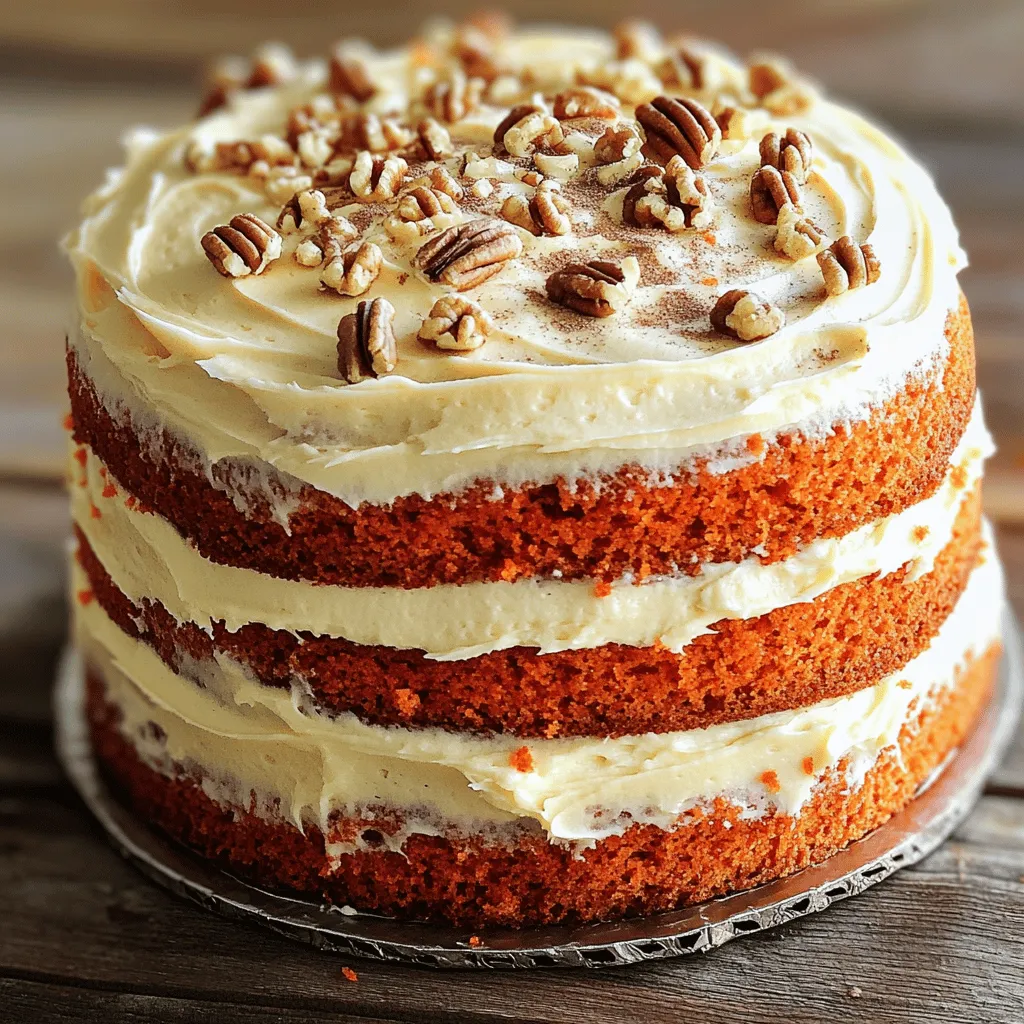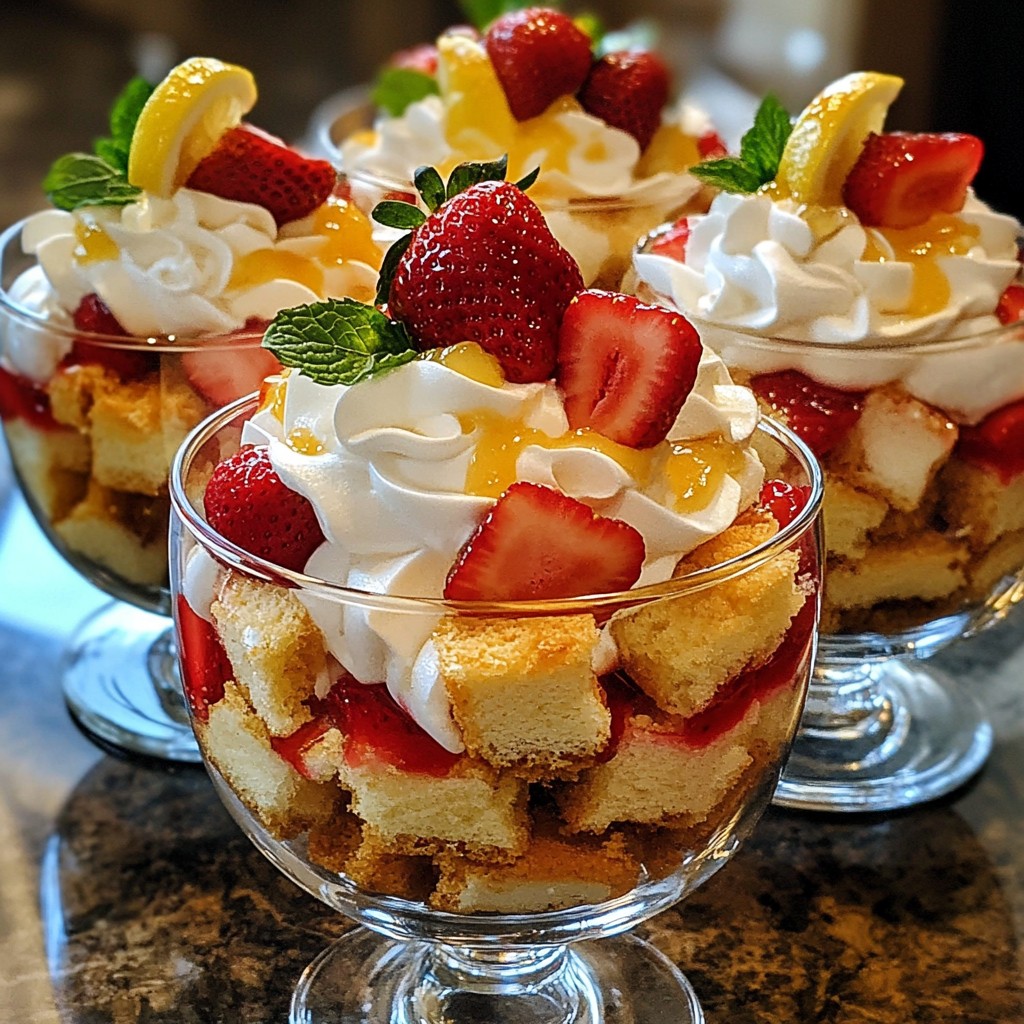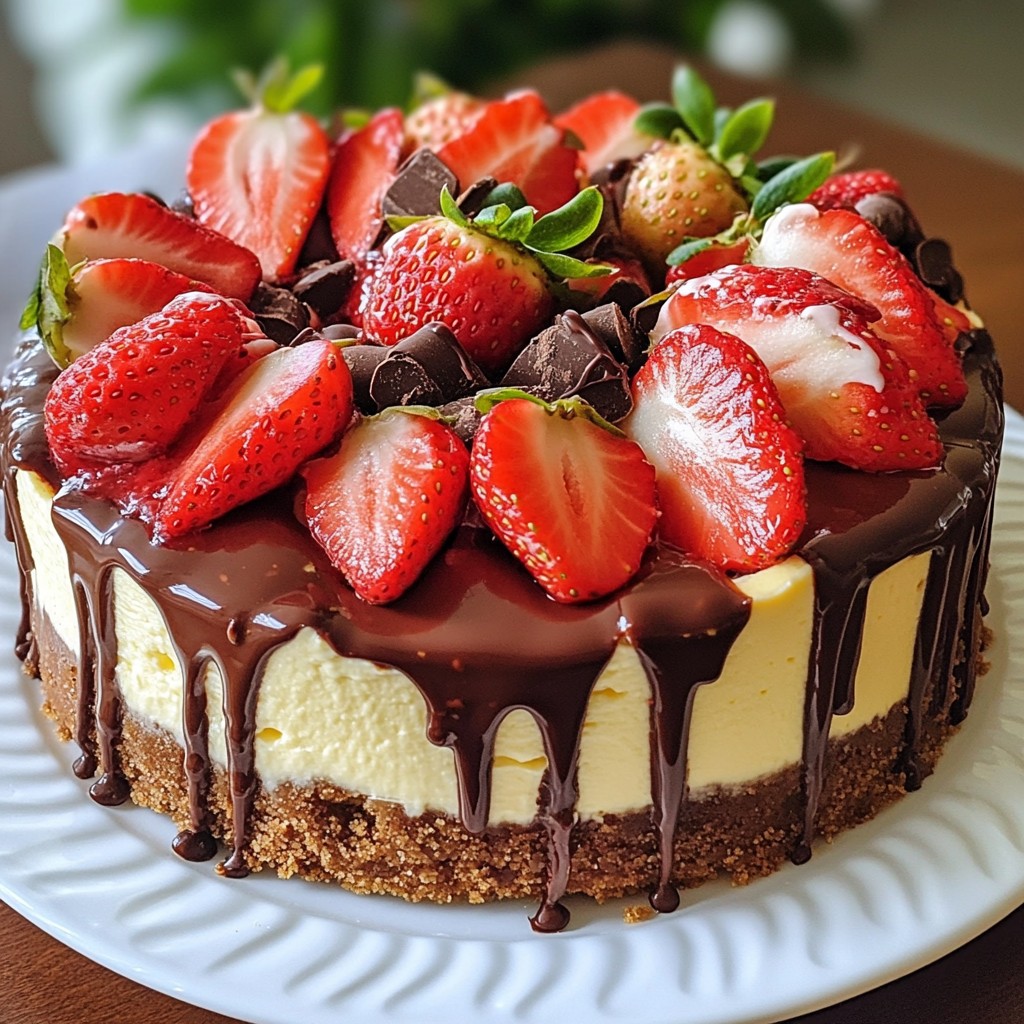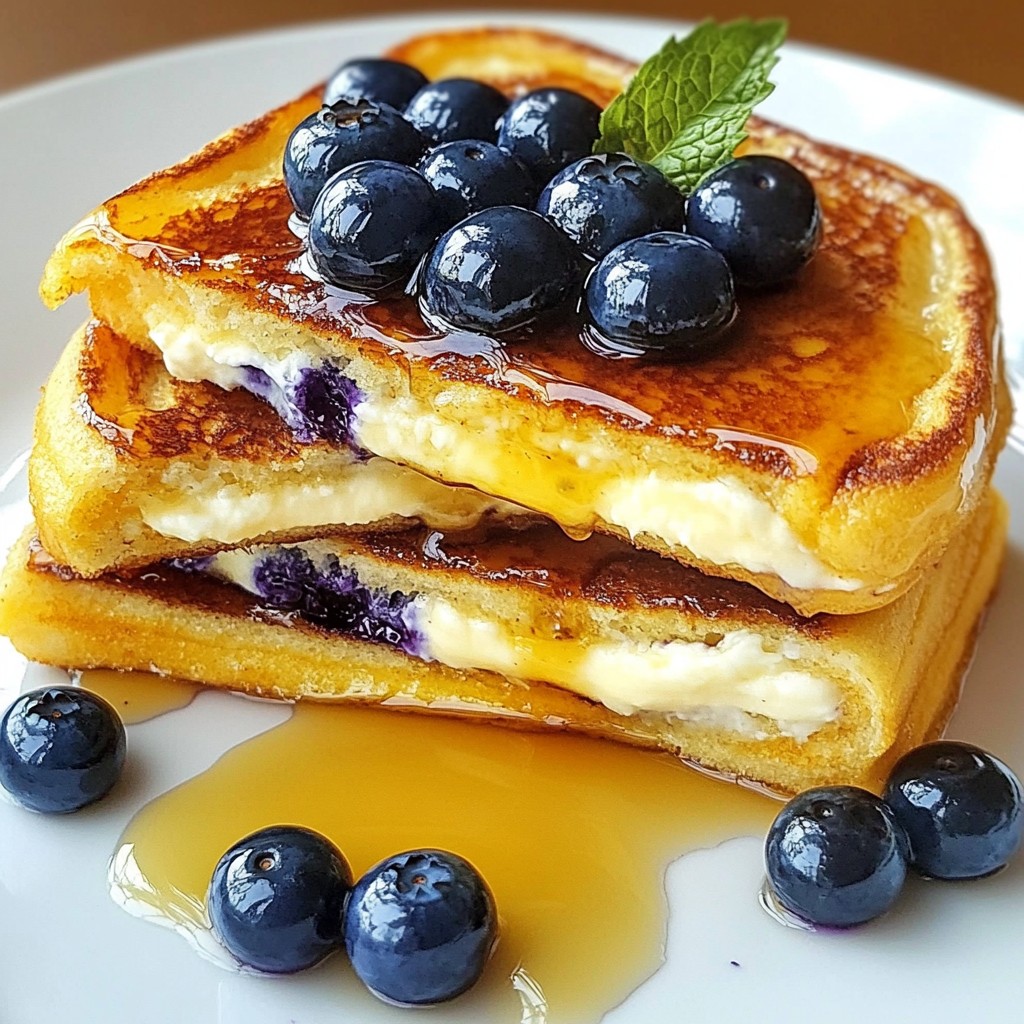Are you ready to bake a Classic Carrot Cake that’s simple and utterly irresistible? With its rich flavors and moist texture, this cake will become your new favorite treat. I’ll guide you through every step, from gathering the ingredients to frosting the cake to perfection. Whether you’re a baking rookie or a seasoned pro, you’ll find tips, tricks, and variations to make this cake your own. Let’s get baking!
Why I Love This Recipe
- Moist and Flavorful: This carrot cake is incredibly moist thanks to the grated carrots and crushed pineapple, creating a delightful texture that melts in your mouth.
- Perfectly Spiced: The combination of cinnamon and nutmeg adds a warm, comforting spice that perfectly complements the sweetness of the cake.
- Easy to Make: With simple ingredients and straightforward steps, this recipe makes it easy for bakers of all levels to create a delicious dessert.
- Versatile Toppings: You can customize this cake with your choice of walnuts or raisins, and the cream cheese frosting is a classic pairing that enhances the flavors.
Ingredients
To make a classic carrot cake, you need some simple ingredients. Here’s the complete list of what you will need:
– 2 cups all-purpose flour
– 2 cups granulated sugar
– 1 teaspoon baking soda
– 1 teaspoon baking powder
– 1 teaspoon ground cinnamon
– 1/2 teaspoon ground nutmeg
– 1/2 teaspoon salt
– 1 cup vegetable oil
– 4 large eggs
– 3 cups grated carrots
– 1 cup crushed pineapple, drained
– 1/2 cup chopped walnuts (optional)
– 1/2 cup raisins (optional)
These ingredients create a moist and flavorful cake. The carrots add sweetness and texture. Pineapple keeps the cake moist, while walnuts and raisins add a nice crunch.
When measuring flour, use a spoon to scoop it into a measuring cup. This prevents packing and keeps your cake light. Always sift the flour with baking soda, baking powder, and spices for even mixing.
For the carrots, fresh is best. Grate them yourself for a vibrant flavor. If you choose to add walnuts or raisins, chop them small for easy mixing. These little touches make the cake even more delicious.Enjoy gathering your ingredients and getting ready to bake!
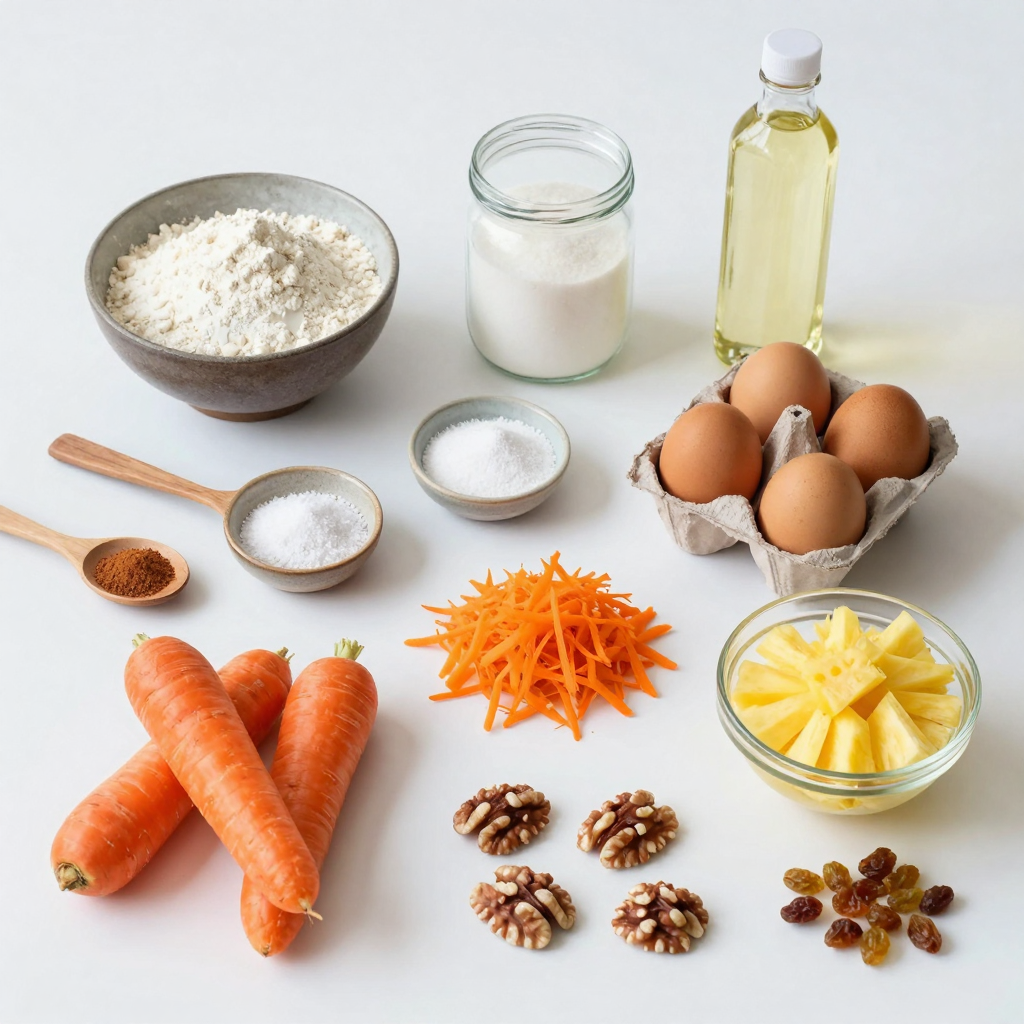
Step-by-Step Instructions
Prepping the Oven and Pans
– Preheat oven to 350°F (175°C).
– Grease two 9-inch round cake pans.
To start, I always make sure my oven is hot enough. A hot oven helps the cake rise well. Greasing the pans keeps the cake from sticking. I use butter or cooking spray for this.
Combining the Dry Ingredients
– Whisk flour, sugar, and leavening agents together.
In a big bowl, I mix flour, sugar, baking soda, and baking powder. I also add cinnamon, nutmeg, and salt. The whisk blends everything well. This step is key for even flavor and texture.
Mixing the Wet Ingredients
– Combine vegetable oil and eggs until smooth.
In another bowl, I beat together vegetable oil and eggs. I make sure this mixture is smooth. It helps the cake stay moist and fluffy.
Creating the Cake Batter
– Gradually combine wet and dry ingredients, then fold in additional ingredients.
Next, I pour the wet mix into the dry mix slowly. I stir gently until just combined. Then, I fold in grated carrots, crushed pineapple, walnuts, and raisins if I’m using them. This makes the cake flavorful and fun.
Baking the Cake
– Divide batter into pans and bake for 25-30 minutes.
I split the batter between the two pans. Then, I tap them lightly to remove air bubbles. I bake them for 25-30 minutes. I check with a toothpick; it should come out clean.
Cooling and Frosting
– Cool cakes before frosting with cream cheese mixture.
After baking, I let the cakes cool in the pans for 10 minutes. Then, I turn them out onto wire racks. Once cool, I frost with cream cheese mix. This makes the cake rich and tasty.
Pro Tips
- Fresh Carrots are Key: Use fresh, firm carrots for the best flavor and texture. Older carrots can be woody and less sweet.
- Measure Flour Accurately: Spoon the flour into your measuring cup and level it off with a knife to avoid compacting it, which can lead to a dense cake.
- Cool Completely: Ensure the cakes are completely cool before frosting. This prevents the frosting from melting and sliding off.
- Enhance Flavor with Spices: Feel free to add a pinch of ground ginger or allspice for extra warmth and depth in flavor.
Tips & Tricks
Achieving the Perfect Texture
Using room temperature ingredients makes mixing easier. Cold eggs or oil can make your batter lumpy. Let them sit out for about 30 minutes before baking. This small step helps the cake rise and bake evenly.
Enhancing Flavor
You can add spices or extracts for a unique twist. A bit of vanilla makes a lovely base flavor. For extra warmth, consider adding ground ginger or allspice. These small changes can make your carrot cake stand out.
Avoiding Common Mistakes
Proper measurement is key to great baking. Use a kitchen scale for accuracy. Too much flour can make the cake dry. Always level off dry ingredients with a knife to avoid this issue. Stick to the recipe for the best results.
By following these tips, you can create a carrot cake that is simple and irresistible.
Variations
Gluten-Free Classic Carrot Cake
You can enjoy carrot cake without gluten. To make a gluten-free version, swap out all-purpose flour for gluten-free flour. Look for blends that work well in baking. Almond flour or coconut flour adds flavor and texture. You may need to adjust the liquid in your recipe. Always check the package for specific instructions. This change keeps the cake moist and tasty.
Healthier Alternatives
If you’re watching your sugar intake, you can reduce sugar in your carrot cake. Try using natural sweeteners like honey or maple syrup. These options add sweetness without refined sugar. Another idea is to use unsweetened applesauce to replace some sugar. This method also keeps the cake moist. Be mindful of the amount, as it may change the cake’s texture.
Different Frosting Options
Cream cheese frosting is classic, but there are many other options. You can try a simple whipped cream frosting for a lighter touch. A yogurt-based frosting adds tang and creaminess without being too heavy. For a dairy-free choice, use a cashew cream frosting. Blend soaked cashews with a splash of vanilla and a sweetener. Each frosting gives a unique twist to your classic carrot cake.
Storage Info
Best Practices for Storing Carrot Cake
To keep your carrot cake fresh, store it in the fridge. Wrap it in plastic wrap or place it in an airtight container. This prevents it from drying out. The cream cheese frosting needs to stay cool, so refrigeration is key. Always slice your cake using a clean knife. This way, you avoid crumbs mixing into the frosting. If you have leftover slices, keep them wrapped to retain moisture.
Freezing Instructions
You can freeze carrot cake if you want it to last longer. Wrap individual slices in plastic wrap, then place them in a freezer bag. This keeps them fresh for a few months. If you prefer freezing the whole cake, wrap it tightly. You can also use aluminum foil for extra protection. When ready to eat, let it thaw in the fridge overnight. It tastes just as good when thawed.
Shelf Life Details
Carrot cake lasts about a week in the fridge. If stored properly, it can stay fresh for even longer in the freezer. The key is to watch for any signs of spoilage. If the frosting starts to look off, it’s best to toss it. You can enjoy carrot cake fresh or cold. Both options give you that delightful flavor.
FAQs
What can I substitute for eggs in carrot cake?
You can use several options for eggs in carrot cake. Common substitutes include:
– Applesauce: Use 1/4 cup for each egg.
– Flaxseed meal: Mix 1 tablespoon of flaxseed with 2.5 tablespoons of water for each egg.
– Chia seeds: Similar to flax, use 1 tablespoon of chia seeds and 2.5 tablespoons of water.
– Yogurt: Use 1/4 cup of plain yogurt per egg.
These options work well and keep your cake moist.
Can I use coconut instead of pineapple?
Yes, you can swap coconut for pineapple in carrot cake. Coconut adds a unique flavor and texture. Use unsweetened shredded coconut for a healthier option. Adjust the sugar in the recipe if using sweetened coconut. This change can make your cake more tropical and fun!
How can I make a vegan carrot cake?
To make a vegan carrot cake, follow these tips:
– Egg replacements: Use applesauce, flaxseed, or chia seeds as discussed.
– Dairy-free options: Use coconut or almond milk instead of regular milk.
– Frosting: For the cream cheese frosting, use vegan cream cheese or a simple glaze with powdered sugar and plant-based milk.
These changes keep the flavor while making it vegan-friendly.
What is the origin of carrot cake?
Carrot cake has roots that date back to the Middle Ages. People used carrots as a sweetener when sugar was scarce. The modern version became popular in the United States in the 1960s. Today, carrot cake is loved for its moistness and spice. It often features cream cheese frosting, making it a classic treat!
This blog post covered how to make a delicious carrot cake from scratch. We looked at the ingredients, step-by-step instructions, tips for the best texture, and various options for frosting. You can also explore gluten-free or healthier versions. Remember to store your cake properly to keep it fresh. Whether you stick to the classic recipe or try a twist, baking carrot cake is fun and rewarding. With this guide, you can create a treat that delights everyone. Enjoy baking your perfect carrot cake!

